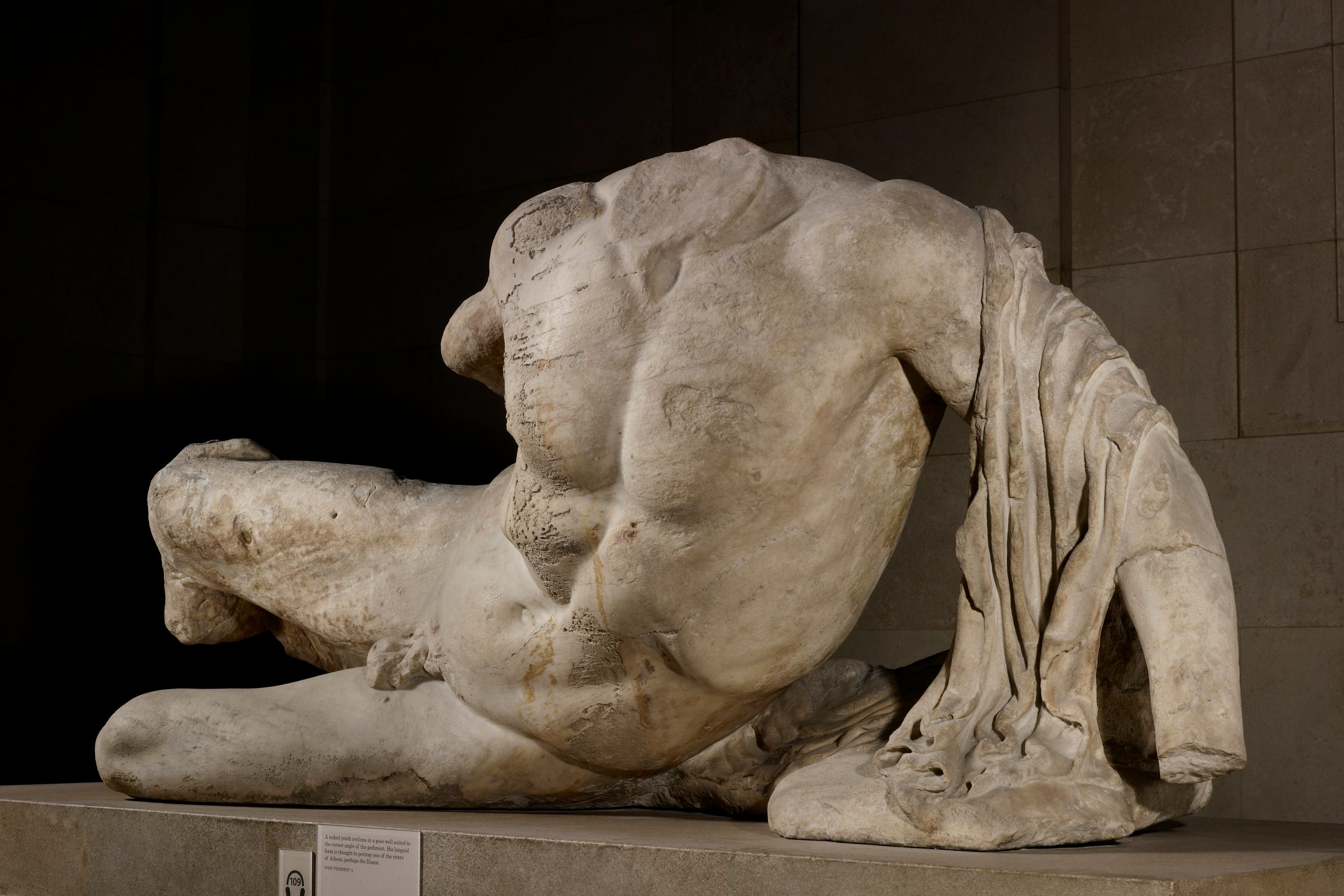British Museum confirms ‘constructive discussions’ with Greece on Elgin Marbles
The sculptures have been the subject of controversy over where they should be displayed.

Your support helps us to tell the story
From reproductive rights to climate change to Big Tech, The Independent is on the ground when the story is developing. Whether it's investigating the financials of Elon Musk's pro-Trump PAC or producing our latest documentary, 'The A Word', which shines a light on the American women fighting for reproductive rights, we know how important it is to parse out the facts from the messaging.
At such a critical moment in US history, we need reporters on the ground. Your donation allows us to keep sending journalists to speak to both sides of the story.
The Independent is trusted by Americans across the entire political spectrum. And unlike many other quality news outlets, we choose not to lock Americans out of our reporting and analysis with paywalls. We believe quality journalism should be available to everyone, paid for by those who can afford it.
Your support makes all the difference.The British Museum has said it continues to have “constructive discussions” over the possible return of the Elgin Marbles to Greece after 200 years.
The 2,500-year-old sculptures were removed from the Acropolis in Athens by Lord Elgin in the early 19th century, when he was the British ambassador to the Ottoman Empire.
The 17 artefacts were bought by the British government, which passed them on to the British Museum where they remain one of the most prized exhibits, making up 30% of the Parthenon sculptures of ancient Greece.
Greek prime minister Kyriakos Mitsotakis has on many occasions called for the marbles to be returned, even offering to lend some of his country’s other treasures to the British Museum in exchange.
On Wednesday, a British Museum spokesman said: “We’ve said publicly we’re actively seeking a new Parthenon partnership with our friends in Greece and, as we enter a new year, constructive discussions are ongoing.”
It comes after the Government rejected Tory peer Lord Vaizey of Didcot’s call for a change in the law to make it easier for UK museums to deal with restitution requests. Current legislation prevents treasures from being legally given away by the museum.
A spokesman for the Department for Digital, Culture, Media and Sport (DCMS) told the PA news agency: “The Parthenon Sculptures in the British Museum are legally owned by the trustees of the British Museum, which is operationally independent of Government. Decisions relating to the care and management of its collections are a matter for the trustees.”
Last month, the museum said it has “publicly called for a new Parthenon partnership with Greece” and will “talk to anyone, including the Greek government, about how to take that forward”.
It added: “We operate within the law and we’re not going to dismantle our great collection as it tells a unique story of our common humanity.
“But we are seeking new positive, long-term partnerships with countries and communities around the world, and that of course includes Greece.”
The British Museum’s response follows a report from the Telegraph which said the museum’s chairman, former Tory chancellor George Osborne, has drawn up an agreement with Athens as part of a “cultural exchange”.